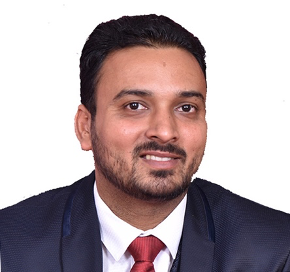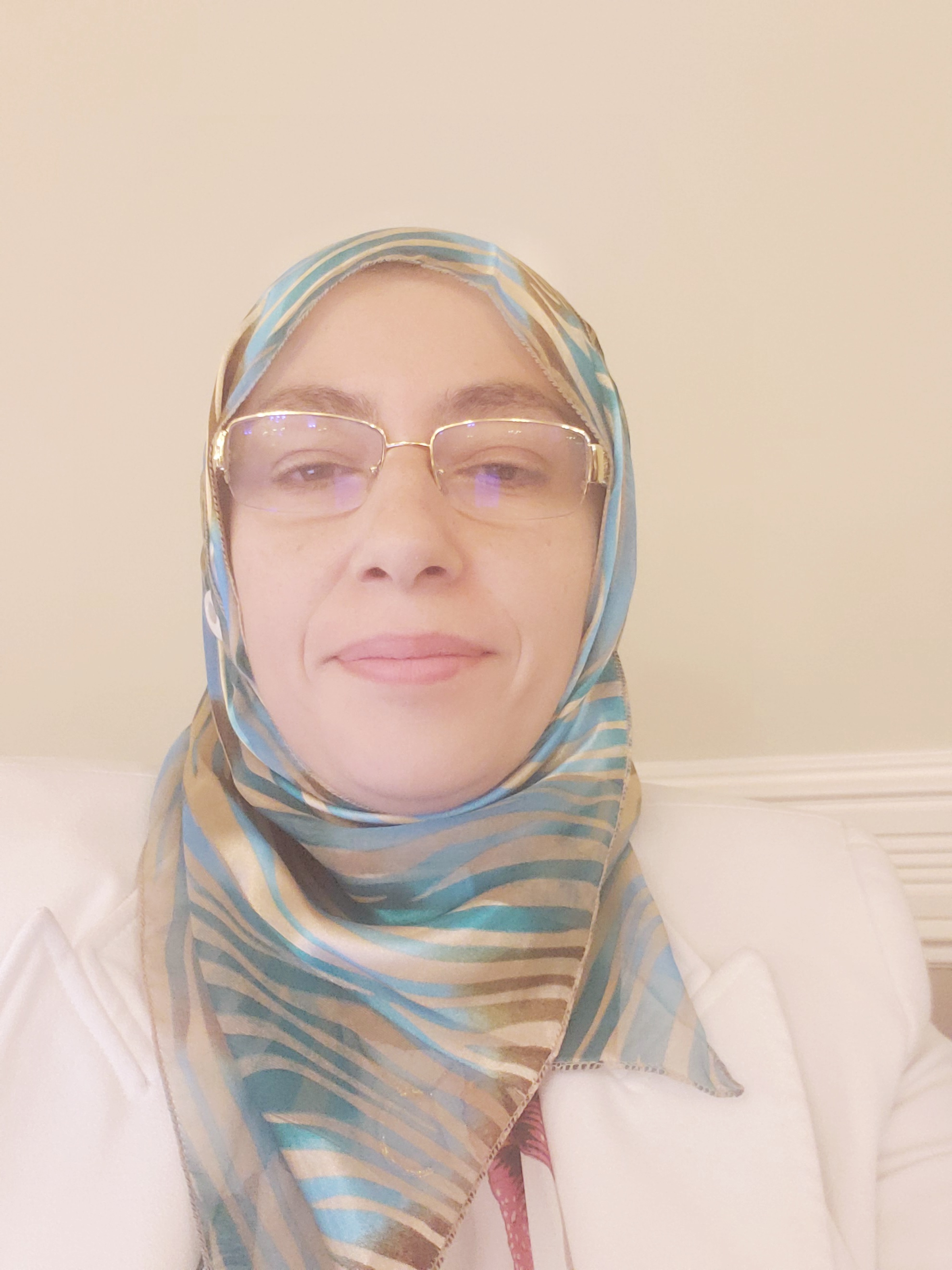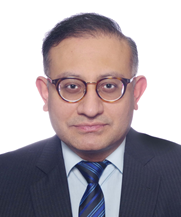Dr. Rajesh Gupta
Nirma University, Ahmedabad, Gujarat, India.
Institute of Technology

Title: Explainable Federated Learning Critical Applications and Research Opportunities
Explainable Federated Learning (XFL) integrates interpretability into federated learning models, enabling decentralized AI systems to provide transparent and accountable
decisions. This paradigm is crucial for critical applications such as healthcare diagnostics, financial forecasting, smart manufacturing, and autonomous systems, where
understanding model behavior is vital for trust, safety, and compliance. XFL addresses key challenges in privacy preservation, heterogeneous data, and regulatory requirements
by combining explainability techniques with federated architectures. This abstract outlines emerging research opportunities in model-agnostic interpretability, personalized explanations, privacy-explainability trade-offs, and human-in-the-loop systems, emphasizing the importance of XFL in advancing ethical, robust, and user-aligned
artificial intelligence.
Biography
Dr. Rajesh Gupta is currently working as an Assistant Professor at Nirma University, Ahmedabad, Gujarat, India. He completed his Ph.D. in Computer Science and Engineering in 2023 from Nirma University
under the supervision of Dr. Sudeep Tanwar. He received his Bachelor of Engineering in 2008 from the University of Jammu, India and Master’s in Technology in 2013 from Shri Mata Vaishno Devi University,
Jammu, India. He has authored/co-authored more than 250 publications (including papers in SCI Indexed Journals and IEEE ComSoc sponsored International Conferences). Some of his research findings are
published in top-cited journals and conferences such as IEEE TII, IEEE TNSM, IEEE TNSE, IEEE TGCN, IEEE TCSS, IEEE Network, IEEE IoTJ, IEEE IoT Magazine, ComCom, CEE Elsevier, IJCS Wiley, Transactions
on Emerging Telecommunications Technologies Wiley, Physical Communication Elsevier, IEEE ICC, IEEE INFOCOM, IEEE GLOBECOM, IEEE CITS, and many more. His research interest includes Device-to-Device
Communication, Network Security, Blockchain Technology, 5G Communication Network, and Machine Learning. His Google Scholar citations are 7600+, h-index 48, and i10-index 110. He is also a recipient
of Doctoral Scholarship from the Ministry of Electronics and Information Technology, Govt. of India under the Visvesvaraya Ph.D. Scheme. His name has been included in the list of Top 2% scientists
worldwide published jointly by Elsevier and Stanford university, USA consecutively in 2021, 2022, 2023, and 2024. He is a recipient of a Travel Grant from IEEE ComSoc and SERB to attend
International Conferences in the USA, South Africa, Germany, etc. He has been selected and participated in the fully-funded the most prestigious ACM’s Heidelberg Laureate Forum 2023, which
was held in Heidelberg University, Heidelberg, Germany. He has been awarded best research paper awards from IEEE ECAI 2021, IEEE ICCCA 2021, IEEE IWCMC 2021, IEEE SCIoT 2022, and IEEE AIDE 2025.
He has been felicitated by Nirma University for their research achievements bagged in 2019, 2020, 2021, and 2022.
Dr. Noha Hassan
Professor-Academic Associate, Ontario Tech University, Oshawa, Ontario, Canada
Faculty of Engineering and Applied Science, Department of Electrical, Computer, and Software Engineering ,

Title: Redefining Connectivity: Adaptive User Association Algorithms for 5G and Beyond
The integration of artificial intelligence (AI) into 5 G+ wireless networks promises unprecedented levels of adaptability, efficiency, and intelligence. However, conventional
AI models remain fundamentally constrained in highly dynamic and resource-constrained wireless environments, as these models are often slow to adapt, require
extensive retraining, act as blackboxes, and are prone to hallucinations; posing severe limitations for real-time, critical applications like reconfigurable intelligent
surfaces (RIS), user association in 6G, or beamforming under mobility. This keynote introduces a new class of meta-learning algorithms that learns how to optimize
rather than just what to optimize. It captures patterns across multiple wireless scenarios and generalizes from them using quantum-enhanced memory, then recalls
similar past episodes through quantum contextual search, and applies a meta-learned adaptation rule to adjust quickly with zero retraining.
Unlike traditional black-box
AI, the algorithm can trace each decision back to the episode(s) where it was made, based on the quantum adaptation rule used, as it does not blindly learn weights.
Additionally, it doesn't generate outputs from scratch like LLMs (e.g., GPT), but instead recalls and adapts proven prior behaviors stored in quantum episodic memory,
which eliminates the potential for hallucinations. This results in a new class of quantum-augmented wireless intelligence that is not only faster and more efficient,
but also more transparent.
Biography
Dr. Noha Hassan earned her Ph.D. in Electrical and Computer Engineering at Toronto Metropolitan University and has extensive experience in intelligent systems development for future wireless networks and
distributed architectures. Dr. Hassan's research explores cutting-edge topics including 5G/6G systems, user association, resource allocation, hybrid RF/mmWave/THz networks, and quantum-enabled network optimization. She has published many papers in top IEEE journals and conferences. Dr. Hassan is a licensed Professional Engineer (P. Eng.) of Ontario and an active member of IEEE. She is currently a postdoctoral research fellow at Toronto Metropolitan University and a research associate at Carleton University. She has served on several university curriculum and course review committees, and regularly reviews for many journals and conferences. With a demonstrated teaching record in software engineering and communications, she has significant experience in community outreach, professional development training, and
mentoring in STEM education.
Dr. Aldebaro Barreto da Rocha Klautau Junior
Professor, Federal University of Pará (UFPA), Brazil

Title: Network Digital Twins for AI-Native 6G: Case Studies in Transport and Radio Access
The vision of 6G encompasses the native integration of artificial intelligence (AI)
across all network layers and components. In this context, network digital twins
(NDTs)
have emerged as a promising enabler. This talk explores the role of NDTs
in the evolution toward AI-native 6G, focusing on two practical case studies:
transport and radio
access networks. In the first case, the NDT employs a Graph
Neural Network (GNN) to enable “what-if” analyses that support decision-making
for dynamic route
optimization. The second case presents an NDT designed to
reduce beamforming signaling overhead in radio access networks by using
multimodal deep neural networks.
This NDT leverages ray-tracing simulations and
3D representations of the physical environment, implemented with the Unreal
Engine.
Biography
Dr. Aldebaro Barreto da Rocha Klautau Junior is a professor at the Federal University of Pará (UFPA) in Northern Brazil,
affiliated with the Graduate Programs in Computer Science (PPGCC) and
Electrical Engineering (PPGEE). He leads the LASSE research group and
represents UFPA in the ITU-T and O-RAN Alliance. He has supervised over 80
graduate students, authored more than 200
peer-reviewed papers, and holds 8
patents. His research focuses on machine learning and signal processing for
telecommunications.
Dr. Ahmed S. Khwaja
Senior Research Associate, (WINCORE) Lab,and Postdoctoral Fellow, DABNEL) Lab, Toronto Metropolitan University, Toronto, Ontario, Canada ,

Title: Digital twins: applications and prospects in wireless communications
Digital twins have an important role to play in various domains, including energy, healthcare, transportation, etc. Their applications in wireless communications will help
in further development and advancement of wireless communications technology, as well as simultaneously enable and extend its usage in diverse sectors. This talk will
first introduce the concept of digital twins and provide an overview of their uses in different domains. This will be followed by a presentation of the current applications
and existing implementations of digital twins in wireless communications, as well as their possible future uses.
Biography
Dr.Ahmed S Khwaja received the Ph.D. degree in Signal Processing and Telecommunications from the University of Rennes 1, France. Currently, he is a Senior Research Associate with the Wireless
Networking
and Communication Research (WINCORE) Laboratory, Department of Electrical, Computer and Biomedical Engineering, and a Postdoctoral Fellow with the Distributed Applications and Broadband Network
(DABNEL) Laboratory, Department of Computer Science, at Toronto Metropolitan University, Toronto, Canada. His research interests include remote sensing, machine learning, and optimization problems in
wireless communication systems and smart grid.



